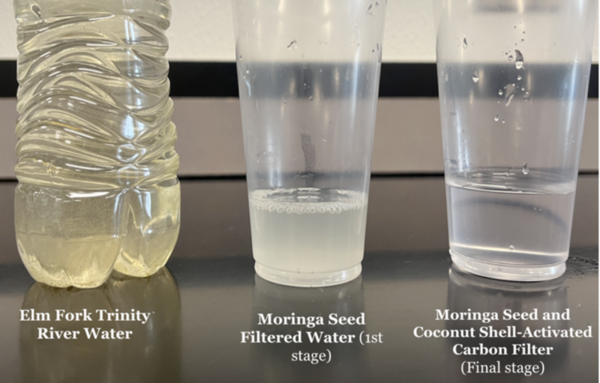Heavy metal and bacterial water filtration using Moringa oleifera and coconut shell-activated carbon
(1) Allen High School
https://doi.org/10.59720/23-021
Scarcity of potable drinking water exposes people to dangerous impurities – i.e., lead, copper, nitrates, and Escherichia coli – that contribute to life-threatening health concerns and are subsequently detrimental to the environment. Current, complex water filtration systems, most commonly reverse osmosis (RO) water filtration systems, remove some heavy metals and bacteria, but are chemically based and expensive to install and maintain. Moringa oleifera, commonly referred to as moringa, is a vegetable tree that produces leaves and fruit with both antibacterial and filtration properties for the removal of bacteria, sediment, and heavy metals suitable for removing them from water. The purpose of this study was to examine the use of moringa seeds as a filtration material. To conduct this study, we filtered simulated polluted water containing lead oxide, copper, and ammonium nitrate with moringa. Our results showed that moringa seeds were an effective filtration material. However, the filtered water still contained a significant concentration of heavy metals. Therefore, to further purify the water, we added a coconut shell-activated carbon (CSAC) filter, which proved to remove 100% of the residual contaminants. A real-world testing sample from Elm Fork Trinity River water was also tested for both heavy metal elimination and bacterial filtration. Results revealed that after the two-stage filtration, E. coli was no longer in detectable range. Our study demonstrates an effective method of heavy metal and bacteria removal from polluted water. Using moringa seed powder and CSAC, this economical, readily available filter can prove to be a more efficient alternative than current RO Systems.
This article has been tagged with: